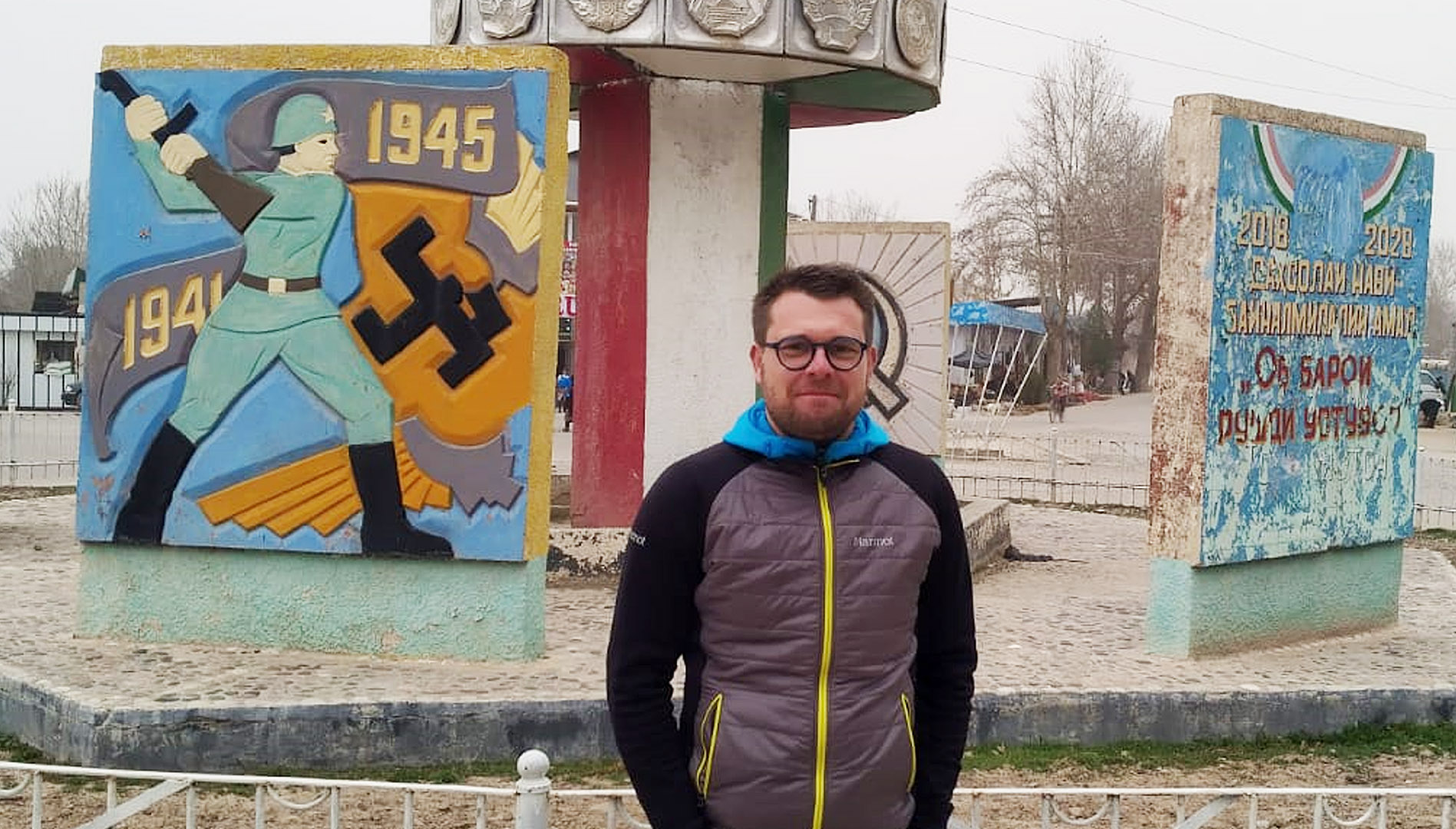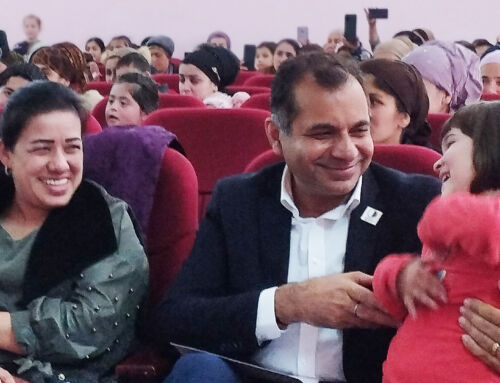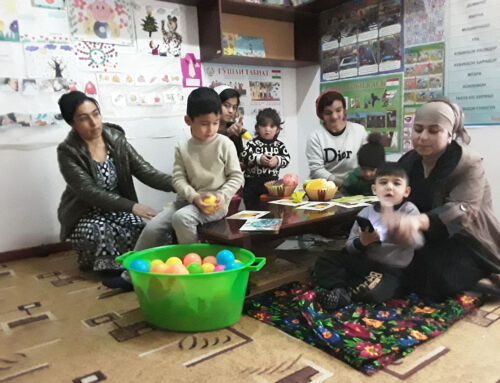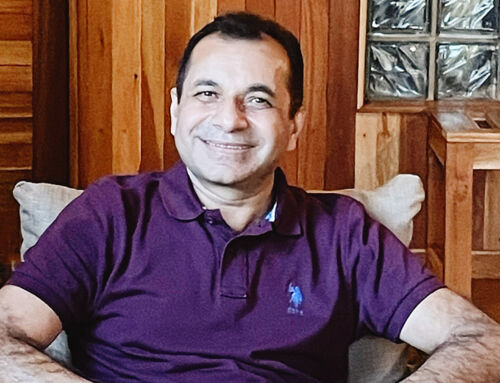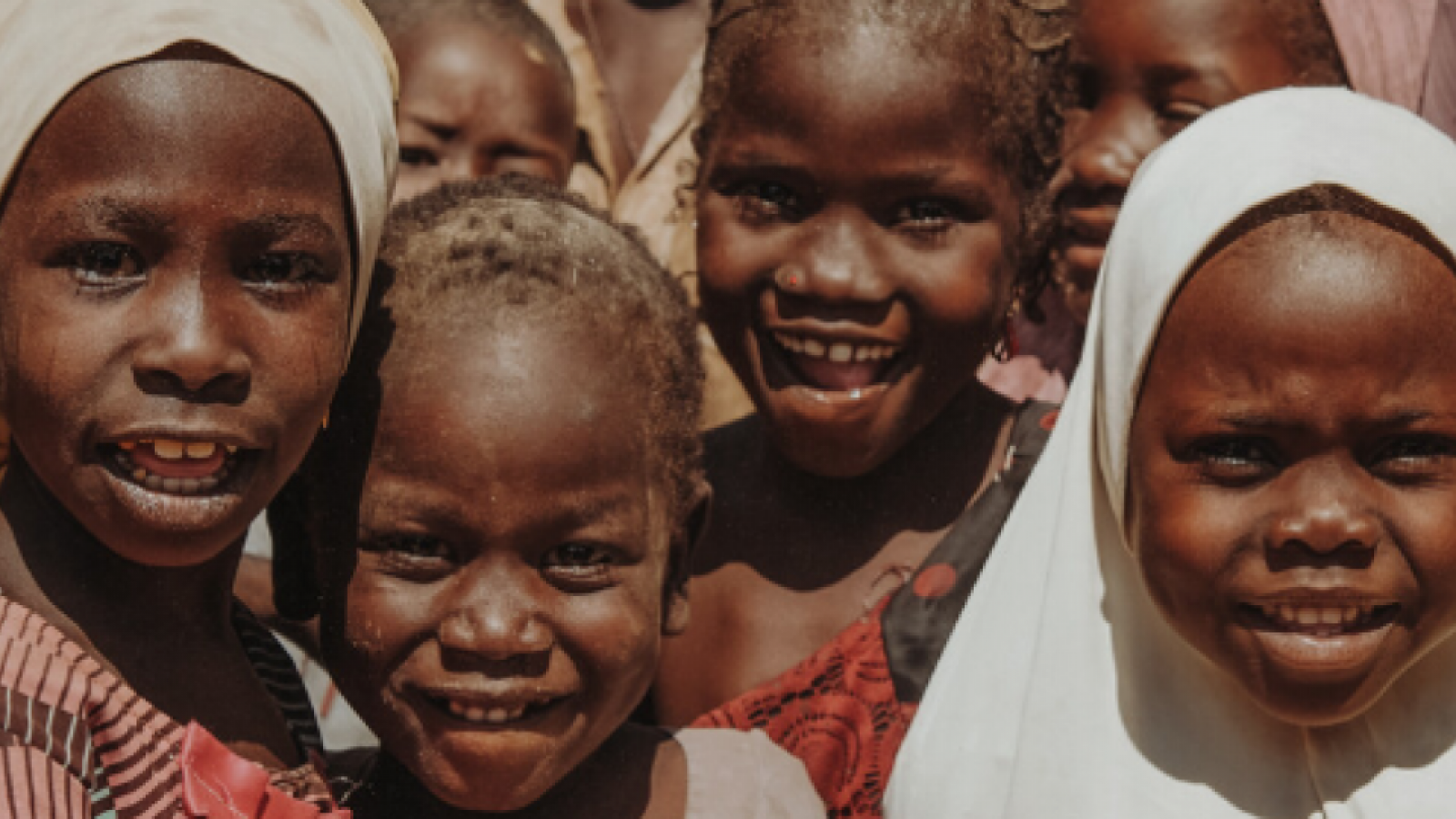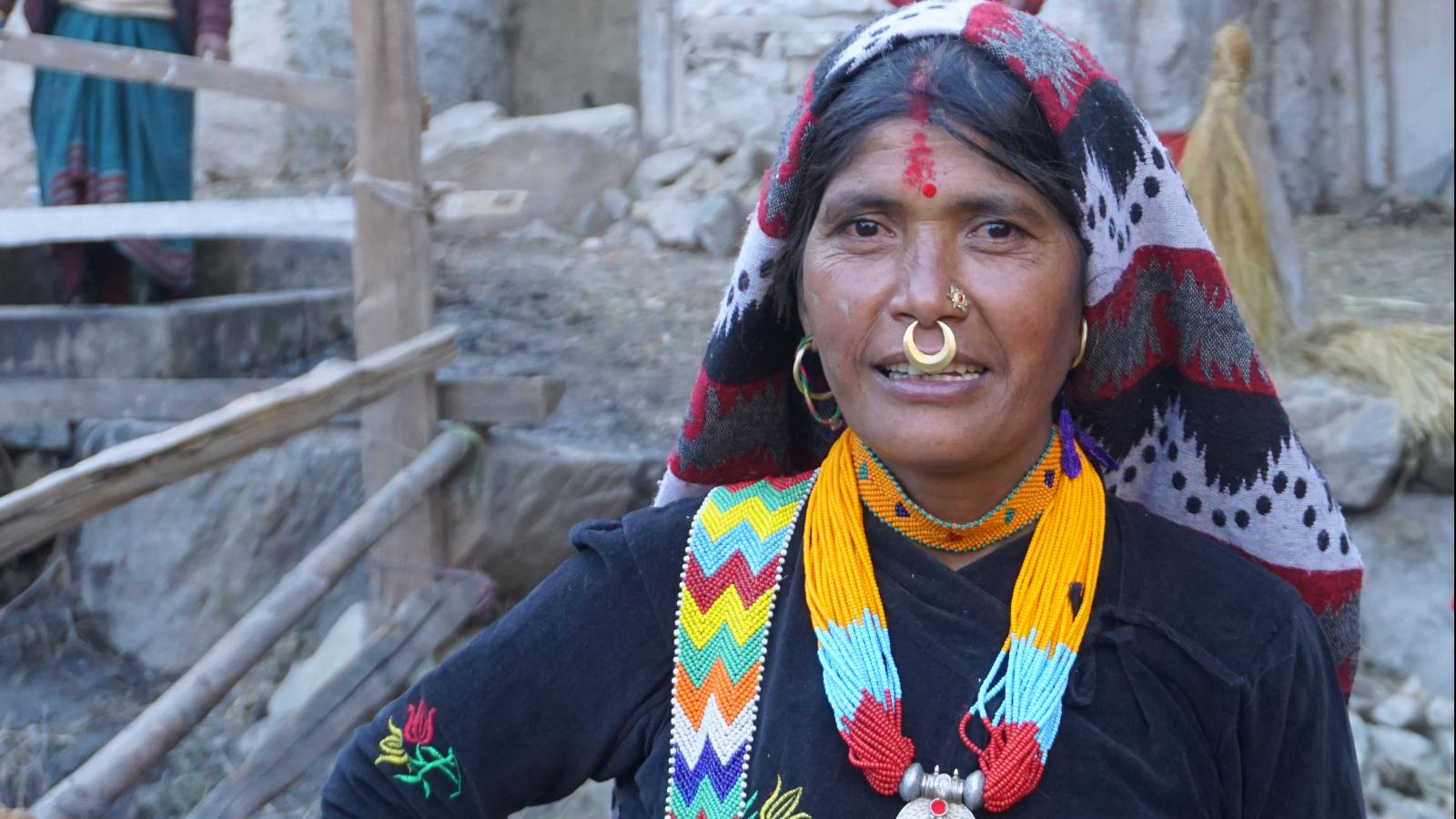Koen Louter recently visited Tajikistan and saw first-hand Mission East’s EU-funded projects for children with disabilities. A visit to a single mother with three children with brain damage made an indelible impression. A mobile rehabilitation team is now helping the family with insight and tools for rehabilitation.
A week in Tajikistan has left Koen Louter with one strong impression in particular. Not the big apartment blocks from the Soviet era. Not the dress of the peaceful people, where it was especially striking that all men wear black clothes. Nor the president’s image that hangs everywhere.
But instead, a visit to a poor family with three children with developmental disabilities, which a team from Mission East visits and helps with both information and rehabilitation .
Koen Louter is HQ program manager which includes responsibility for Mission East’s work in Tajikistan and visited the country the first week of February 2022.
Brain damage inhibits children’s development
Mission East Country Director Sakari Koivula and a rehabilitation team from local partner organization Mehrgon took Koen Louter out to visit a family where a single mother looks after four children. Three out of the four children suffer from cerebral palsy – ie. brain damage that inhibits their movements, language and mental development. They were mostly lying on the floor staring at a big tv screen, the only feature in the room.
– It touched me deeply to see this family sitting locked up and without opportunities. The mother had lost her husband a few years earlier, and had only one son who in time might be able to provide the family with an income. Fortunately, neighbors in the village had helped the family build a house that was actually fairly habitable. But how will this family fare in the future? How could the children – especially the three children with disabilities – develop their potential?
Need a new mindset
Mission East supports two rehabilitation centers for children with disabilities in Tajikistan. But that is not enough, as many families with these challenges live far away. Therefore, the centers send rehabilitation teams to the villages to help families with children who have special challenges, and to inform and guide the parents on how to promote the children’s development.
– It’s first and foremost about giving them a different mindset. In a country like Tajikistan, children with disabilities are often stigmatized. They are stuck in their situation and are just put away or hidden away. Our team tells parents about their children’s rights and shows them how to mobilize their children’s opportunities – because yes, there are always opportunities! The children actually have the opportunity to develop and exploit their potential despite their challenges if they are given recognition, therapy and various physical exercises.
Toys activate the children
It was such a rehabilitation team that invited Koen Louter out to the single mother and her children:
– The team had visited the family several times as part of our screening process. Given the gravity of this family situation we brought some simple toys to help the kids. I will never forget the sight of the poor, trapped little family. At the same time, I am glad that we have found them and now help the mother and children to a better life.
The visit to Tajikistan was Koen Louters first – and he is very pleased with the visit.
– It’s incredible what you can achieve in a week. I now feel better equipped to guide and advise our staff and local partners on the projects. Just driving together over the great distances, talking to each other and getting to know each other. To have fun together in the evening. And listen, learn, ask questions and plan your efforts together. Yes, get to know the country and the culture.
– The problems in Tajikistan are not solved by sending 20 wheelchairs away. It’s about changing a whole mindset and equiping the communities so that they know how they can be more inclusive towards disability concludes Koen Louter.

